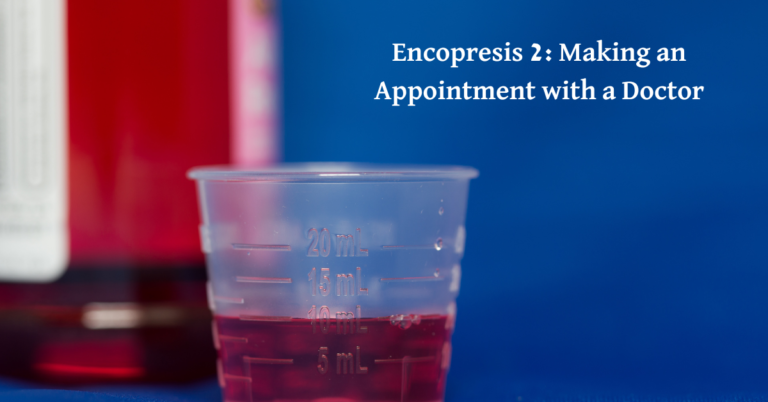After the previous intro post on encopresis, the next few posts will focus on the practical aspects of the treatment model we use. The current post will discuss the first step: making an appointment with a doctor.
When parents reach out to us, the first thing we recommend is making an appointment with a pediatric gastroenterologist. The reason for this is two-fold: firstly, it’s important to rule out any of the purely/predominately physical issues mentioned previously (or learn to mitigate them/take them into account). Secondly, it allows us to better understand and manage what is going on from a physiological perspective: is there constipation and to what extent, whether and how the colon has been affected etc.
Often, a pediatrician or gastroenterologist will recommend a laxative. In Israel, the most commonly used one seems to be Polyethylene Glycol, with the common brand name in Israel being Normalax (נורמלקס) and Miralax in the USA. The way that this laxative works (1) is by retaining water together with the stool. This makes the stool softer and easier to pass, relieving some or all of the constipation issues.
Use of a laxative is usually *necessary but not sufficient*. Let’s break that down for a bit: why is using a laxative often *necessary*? If we’re going to focus on relearning a habit, can’t we just do that?
Although just focusing on habit training may work sometimes, it is very rarely the case. The reason is because if you want to fix an issue, you first have to get rid of the mechanisms that are perpetuating the problem. In this case, if you want your child’s sensors and muscles to help them 1) accurately identify when they need to go to the bathroom 2) hold it in until they make it there 3) correctly and fully expel any stool, you need to make sure that there’s not something that’s gumming up the works!
But why is the use of a laxative not *sufficient*? Isn’t constipation one of the root issues of encopresis? Firstly: Great questions! Keep them up!
Although constipation plays a central role in the development and maintenance of encopresis, the main issue really is a habit that has gone haywire. Instead of a child noting when they need to go and doing so, they have gotten used to delaying and holding, and now even when they would prefer using a bathroom, they’re often not able to make it.
The vast majority of parents who reach out have already tried using laxatives, either due to medical advice or as a result of an independent decision. It’s definitely *possible* in certain cases that as a first-step response this may be sufficient (but I can’t say for certain, as these families wouldn’t be reaching out to us!), but usually focusing on habits is necessary in order to fully help your child overcome this issue.
Last question about laxatives before moving on to the second step: If my child’s sensors and muscles are a little off, won’t using a laxative just make matters worse?
The somewhat confounding answer is: sometimes.
It’s important to try and get the dosage right by consulting with a physician. Too much, and your child will experience a worsening of symptoms (and increased frustration and tension for all of you). Too little, and the problem won’t start to be resolved. Usually, people receive recommendations to begin with a lower dosage and then to work up as the habit training becomes more intensive.
Next post will discuss the use of the Tracking Chart.
